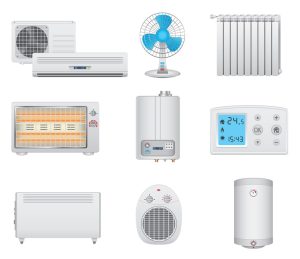One of the most significant recent changes in the HVAC field is the introduction of the SEER2 efficiency rating for air conditioning systems. In this blog post, we’ll delve into what SEER2 means, how it differs from previous ratings, and why you should consider upgrading your air conditioning in Colorado Springs, CO if it’s over a decade old.
What Is SEER2?
SEER stands for Seasonal Energy Efficiency Ratio, and it has been the standard measure of air conditioner efficiency for years. It represents the ratio of cooling output over a typical cooling season divided by the energy consumed in watt-hours. Essentially, the higher the SEER rating, the more efficient the air conditioning system.
However, as technology and energy standards evolve, so do the metrics we use to measure them. Enter SEER2, the next generation of efficiency rating. SEER2 is designed to provide a more accurate and comprehensive measure of an air conditioner’s efficiency by taking into account real-world factors and conditions that were not fully considered in the original SEER rating.
Key Differences Between SEER and SEER2
SEER2 differs from SEER in several critical ways:
- Testing Conditions: SEER2 uses more stringent testing conditions that reflect real-world usage better than the conditions used for SEER. This means SEER2 provides a more realistic picture of how efficiently an air conditioner will perform in your home.
- Updated Standards: SEER2 is aligned with updated federal energy efficiency standards, ensuring that new air conditioning units are held to higher efficiency benchmarks.
- Enhanced Accuracy: By incorporating more variables into the efficiency calculations, SEER2 offers a more accurate representation of an air conditioner’s performance, including its ability to handle varying temperatures and humidity levels.
Why SEER2 Matters to Homeowners
Understanding SEER2 is essential for making informed decisions about your home’s HVAC system. Higher SEER2 ratings typically translate to lower energy bills and a reduced environmental footprint, as more efficient units use less electricity to cool your home. This efficiency not only saves you money but also contributes to a more sustainable future.
Should You Upgrade Your AC?
If your air conditioner is more than 10 years old, it’s time to seriously consider an upgrade. Here’s why:
- Improved Efficiency: Air conditioners manufactured over a decade ago are significantly less efficient than today’s models. With the introduction of SEER2, new units are now optimized to deliver superior performance, which can dramatically reduce your energy bills.
- Enhanced Comfort: Modern air conditioning systems offer better temperature and humidity control, improving the overall comfort of your living space.
- Reduced Maintenance Costs: Older AC units often require more frequent repairs and maintenance. Upgrading to a new, more reliable system can save you money on service calls and parts.
- Environmental Impact: Newer air conditioners are designed to be more eco-friendly, reducing your home’s carbon footprint. This is increasingly important as we strive to combat climate change.
We’ll Help You Choose the Best New AC
When shopping for a new air conditioner, look for units with high SEER2 ratings. While the initial investment may be higher, the long-term savings on energy bills and maintenance costs will be well worth it.
At Robbins Heating & Air Conditioning, we’re committed to helping our clients choose the best HVAC solutions for their needs. Our team of experts can guide you through the selection process, ensuring you find an air conditioner that meets your efficiency requirements and budget.
Robbins Heating & Air Conditioning serves Colorado Springs and the surrounding area. Contact for all your AC needs.

